Kosovo independence unacceptable, Tadić tells UN
President Boris Tadić on Thursday addressed the 62nd UN General Assembly session in New York.
Thursday, 27.09.2007.
09:40

President Boris Tadic on Thursday addressed the 62nd UN General Assembly session in New York. "Kosovo's independence is unacceptable for Serbia," he told the gathering of the world leaders, and reminded that "only the Security Council can make a legitimate decision on the status of the province," at the same time calling on Kosovo Albanians to engage in the renewed negotiations "without prejudicing the outcome." Kosovo independence unacceptable, Tadic tells UN Tadic said that Belgrade, "proceeding from the firm position that the independence of Kosovo was unacceptable for Serbia," offered Kosovo Albanians special rights and competences, for the autonomous development of their community inside the Republic of Serbia. "While defending the state sovereignty and territorial integrity of Serbia, our negotiating team has offered a model of decentralization, based on European solutions, which would efficiently defend the interests of Kosovo Albanians, but also of the imperiled Serbian, as well as other, non Albanian ethnic communities in the province," Tadic said. He pointed out that Serbia was offering solutions that with mutual consent, while applying European values and rules, would "in lasting manner resolve the long standing ethnic conflict, open the prospect of reconciliation and life together inside a modern, democratic and European Serbia." "Our country is ready to reach a compromise, but insists on the respect of its legitimate state and national interests and the specific needs of the endagered Serbian and other communities in the province, who have witnessed exodus, such as the Romas and Goranis," the president said. Tadic reminded that since 1999 more than 200,000 Serbs had left Kosovo, and that up to this date, according to UNHCR data, only 7,100 have returned. "Today the negotiations are conducted under the Contact Group aegis, but a legitimate decision over the status of Kosovo can be made only by the UN Security Council. Only a decision by that institution is considered as grounded in international law," he told the UN General Assembly audience. Tadic added that democratic Serbia, while insisting on respect for its territorial integrity, is committed to reaching a solution by diplomatic, legal and peaceful means and that is why "it will not accept the threat of resorting to violence by the other side as an argument in the negotiations for redrawing the borders of legitimate democracies and nullifying the norms of international law." "That is why Serbia is consistently warning of unforeseeable consequences of such an unprincipled and dangerous policy, and remains committed to seeking a peaceful and compromise solution by way of dialogue, while fully respecting the United Nation's Charter," the president underscored. He also cautioned that a unilateral declaration of independence of Kosovo "on December 11" would change the international legal order and incite separatist movements in the world to use the newly-set precedent. "That is why we call on the legitimate representatives of Kosovo Albanians to engage in the renewed negotiations, without prejudicing the outcome, aimed at reaching a compromise solution acceptable to both sides, which would lead to long term Serbian-Albanian reconciliation," Tadic said. He reminded that Serbia was chairing this year the Council of Europe Committee of Ministers and in that capacity was trying to make its maximal contribution to enhance democracy, protect human rights and the rule of law, as the fundamental values of the oldest pan European organization. "Serbia's strategic interest is to become a member of the European Union," Tadic said and explained that Belgrade was making efforts to become a candidate for full membership by the end of 2008. Serbia, he said, is also engaged in the process of Euro-Atlantic integrations, in the NATO Partnership for Peace program, "whereby it is clearly accepting European values and showing a readiness to develop in keeping with the top European standards." Confident that a European prospect of the whole Western Balkans was the most efficient way to stabilize the situation and step up the development of all countries in the region, Tadic reminded that, "unfortunately, the issue of war crimes was still burdening the relations of countries in the Balkans." "Serbia, for its part, is doing everything in its power to locate, arrest and hand over to the Tribunal in The Hague those indicted for war crimes, whereby it is demonstrating a full commitment to successfully completing cooperation with the International Criminal Tribunal for the former Yugoslavia," Tadic underlined and pointed out that was an international obligation and "something we owe to ourselves, but also to our neighbors." Tadic, speaking about the engagement of our country in the resolving of global problems, notably through regional cooperation, reminded that Serbia last year hosted a regional summit dedicated to combating terrorism, organized crime and corruption, and that it participated in the joint military exercises with the Romanian and Bulgarian armies. "Serbia firmly believes that the United Nations remains an irreplaceable authority and a mechanism for preventing crises and resolving conflicts," and as "a responsible member of the international community and international organizations, it fully respects the United Nations Charter and the international-legal order established by it," the president concluded his speech at the 62nd UN General Assembly. President Boris Tadic addresses the UN General Assembly (FoNet) Tadic: Terrorists train in northern Macedonia Earlier today, Tadic said that terrorists are being trained in northern Macedonia, Beta quoted the BBC. The president said the he told Russian Foreign Minister Sergei Lavrov about terrorist activities in the northern part of Macedonia, conducted by a number of escaped innmates from Kosovo, planning attacks on Serbia’s southern municipalities. "We will give this information to the United Nations officials as well. The process needs to be followed closely, without panic." "Serbia is absolutely ready to protect its interests in every moment, but we must all know what is happening currently in Kosovo and the entire region,” the president said. Tadic said that both the Serbian government and Kosovo Albanian negotiations teams have the chance to make compromises and progress in the status talks. He said that after meeting with officials from Russia and China, he saw that there is "a high level of understanding between Serbia and the two countires on all central issues, particularly Kosovo’s status." "Russian Foreign Minister Sergei Lavrov said that Moscow is staying with its original stance that Kosovo independence sets a dangerous precedent and is not acceptable for the Russian foreign political position, not in the UN only, but in general." "Russia defends the position because of its interests, which is completely legitimate. Serbia defends this the same stance because of its legitimate interests. And it is good to know that we have that kind of open cooperation,” Tadic said. He also told the BBC that he not only discuss Kosovo in his series of bilateral meetings in New York, but that he touched on economic relations, which he said are important to Serbia’s position, not only when it came to the Kosovo question. The president will lead the Belgrade negotiating team, along with Prime Minister Vojislav Kostunica, in the direct talks with the Kosovo Albanian delegation in New York tomorrow. Joining the president and the prime minister will be Kosovo Minister Slobodan Samardzic, Foreign Minister Vuk Jeremic, and Kosovo Serb representatives Marko Jaksic and Goran Bogdanovic. The Pristina Kosovo status delegation will be led by Kosovo President Fatmir Sejdiu and includes Assembly Speaker Kolj Berisha, Prime Minister Agim Ceku and opposition leaders Hashim Thaci and Veton Surroi.
Kosovo independence unacceptable, Tadić tells UN
Tadić said that Belgrade, "proceeding from the firm position that the independence of Kosovo was unacceptable for Serbia," offered Kosovo Albanians special rights and competences, for the autonomous development of their community inside the Republic of Serbia."While defending the state sovereignty and territorial integrity of Serbia, our negotiating team has offered a model of decentralization, based on European solutions, which would efficiently defend the interests of Kosovo Albanians, but also of the imperiled Serbian, as well as other, non Albanian ethnic communities in the province," Tadić said.
He pointed out that Serbia was offering solutions that with mutual consent, while applying European values and rules, would "in lasting manner resolve the long standing ethnic conflict, open the prospect of reconciliation and life together inside a modern, democratic and European Serbia."
"Our country is ready to reach a compromise, but insists on the respect of its legitimate state and national interests and the specific needs of the endagered Serbian and other communities in the province, who have witnessed exodus, such as the Romas and Goranis," the president said.
Tadić reminded that since 1999 more than 200,000 Serbs had left Kosovo, and that up to this date, according to UNHCR data, only 7,100 have returned.
"Today the negotiations are conducted under the Contact Group aegis, but a legitimate decision over the status of Kosovo can be made only by the UN Security Council. Only a decision by that institution is considered as grounded in international law," he told the UN General Assembly audience.
Tadić added that democratic Serbia, while insisting on respect for its territorial integrity, is committed to reaching a solution by diplomatic, legal and peaceful means and that is why "it will not accept the threat of resorting to violence by the other side as an argument in the negotiations for redrawing the borders of legitimate democracies and nullifying the norms of international law."
"That is why Serbia is consistently warning of unforeseeable consequences of such an unprincipled and dangerous policy, and remains committed to seeking a peaceful and compromise solution by way of dialogue, while fully respecting the United Nation's Charter," the president underscored.
He also cautioned that a unilateral declaration of independence of Kosovo "on December 11" would change the international legal order and incite separatist movements in the world to use the newly-set precedent.
"That is why we call on the legitimate representatives of Kosovo Albanians to engage in the renewed negotiations, without prejudicing the outcome, aimed at reaching a compromise solution acceptable to both sides, which would lead to long term Serbian-Albanian reconciliation," Tadić said.
He reminded that Serbia was chairing this year the Council of Europe Committee of Ministers and in that capacity was trying to make its maximal contribution to enhance democracy, protect human rights and the rule of law, as the fundamental values of the oldest pan European organization.
"Serbia's strategic interest is to become a member of the European Union," Tadić said and explained that Belgrade was making efforts to become a candidate for full membership by the end of 2008.
Serbia, he said, is also engaged in the process of Euro-Atlantic integrations, in the NATO Partnership for Peace program, "whereby it is clearly accepting European values and showing a readiness to develop in keeping with the top European standards."
Confident that a European prospect of the whole Western Balkans was the most efficient way to stabilize the situation and step up the development of all countries in the region, Tadić reminded that, "unfortunately, the issue of war crimes was still burdening the relations of countries in the Balkans."
"Serbia, for its part, is doing everything in its power to locate, arrest and hand over to the Tribunal in The Hague those indicted for war crimes, whereby it is demonstrating a full commitment to successfully completing cooperation with the International Criminal Tribunal for the former Yugoslavia," Tadić underlined and pointed out that was an international obligation and "something we owe to ourselves, but also to our neighbors."
Tadić, speaking about the engagement of our country in the resolving of global problems, notably through regional cooperation, reminded that Serbia last year hosted a regional summit dedicated to combating terrorism, organized crime and corruption, and that it participated in the joint military exercises with the Romanian and Bulgarian armies.
"Serbia firmly believes that the United Nations remains an irreplaceable authority and a mechanism for preventing crises and resolving conflicts," and as "a responsible member of the international community and international organizations, it fully respects the United Nations Charter and the international-legal order established by it," the president concluded his speech at the 62nd UN General Assembly.
Tadić: Terrorists train in northern Macedonia
Earlier today, Tadić said that terrorists are being trained in northern Macedonia, Beta quoted the BBC.The president said the he told Russian Foreign Minister Sergei Lavrov about terrorist activities in the northern part of Macedonia, conducted by a number of escaped innmates from Kosovo, planning attacks on Serbia’s southern municipalities.
"We will give this information to the United Nations officials as well. The process needs to be followed closely, without panic."
"Serbia is absolutely ready to protect its interests in every moment, but we must all know what is happening currently in Kosovo and the entire region,” the president said.
Tadić said that both the Serbian government and Kosovo Albanian negotiations teams have the chance to make compromises and progress in the status talks.
He said that after meeting with officials from Russia and China, he saw that there is "a high level of understanding between Serbia and the two countires on all central issues, particularly Kosovo’s status."
"Russian Foreign Minister Sergei Lavrov said that Moscow is staying with its original stance that Kosovo independence sets a dangerous precedent and is not acceptable for the Russian foreign political position, not in the UN only, but in general."
"Russia defends the position because of its interests, which is completely legitimate. Serbia defends this the same stance because of its legitimate interests. And it is good to know that we have that kind of open cooperation,” Tadić said.
He also told the BBC that he not only discuss Kosovo in his series of bilateral meetings in New York, but that he touched on economic relations, which he said are important to Serbia’s position, not only when it came to the Kosovo question.
The president will lead the Belgrade negotiating team, along with Prime Minister Vojislav Koštunica, in the direct talks with the Kosovo Albanian delegation in New York tomorrow.
Joining the president and the prime minister will be Kosovo Minister Slobodan Samardžić, Foreign Minister Vuk Jeremić, and Kosovo Serb representatives Marko Jakšić and Goran Bogdanović.
The Priština Kosovo status delegation will be led by Kosovo President Fatmir Sejdiu and includes Assembly Speaker Kolj Berisha, Prime Minister Agim Ceku and opposition leaders Hashim Thaci and Veton Surroi.










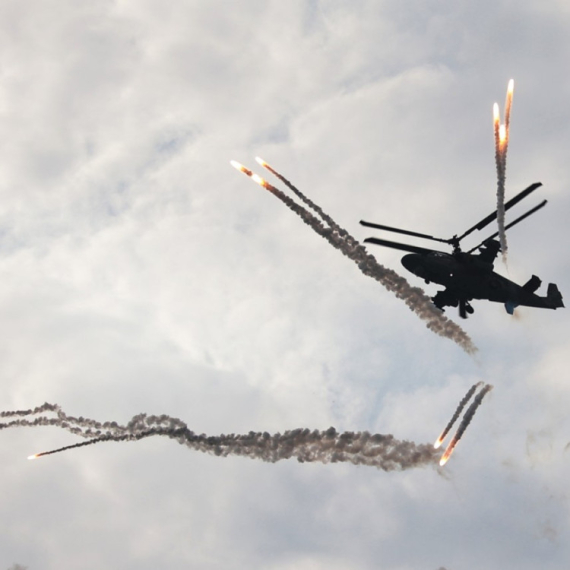

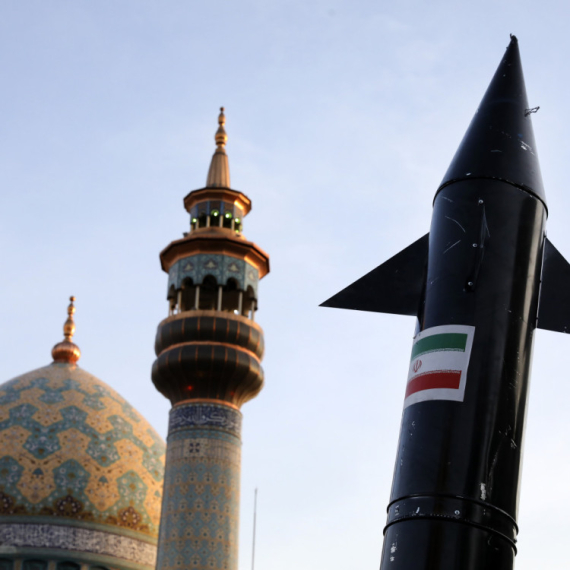


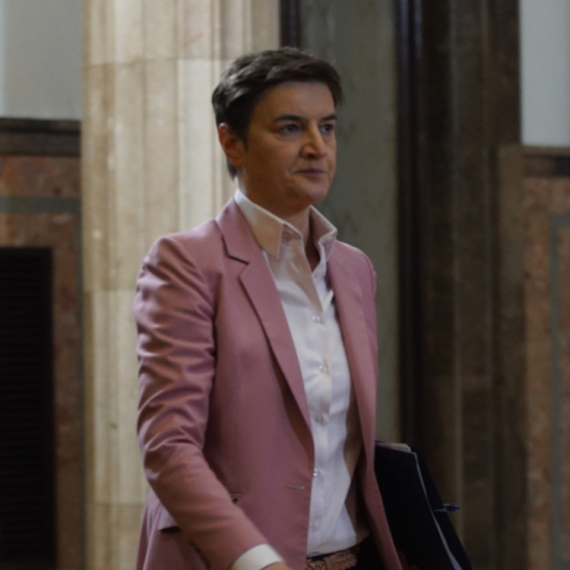




















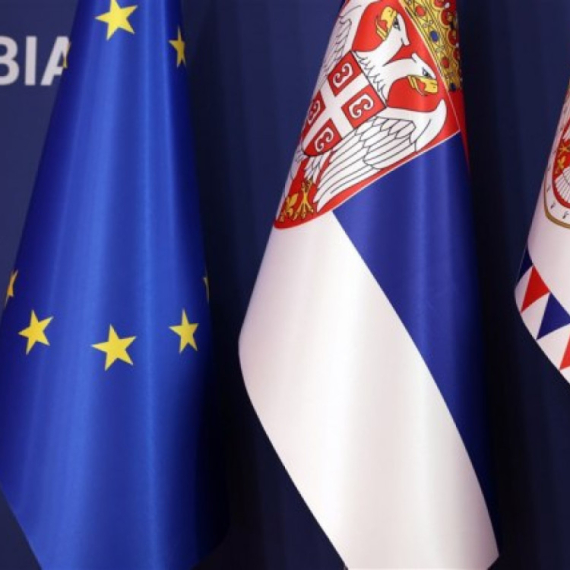
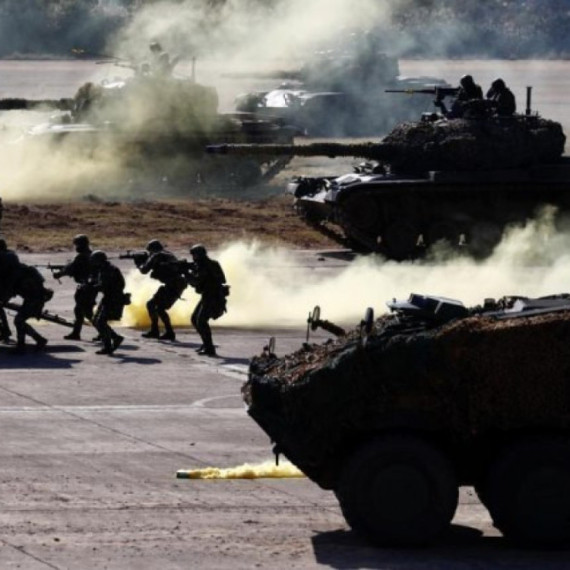
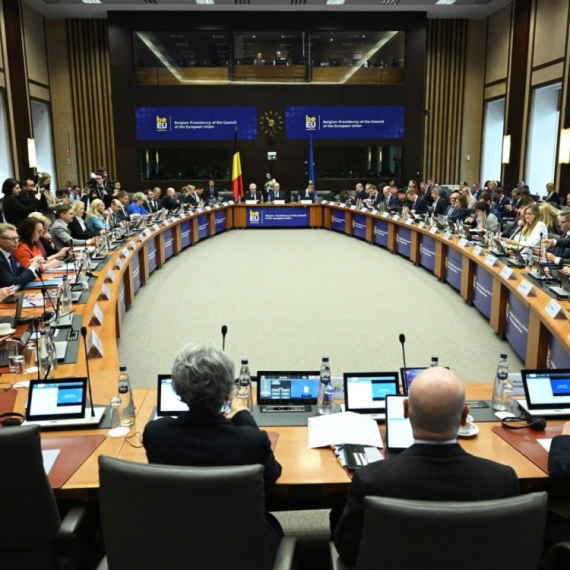
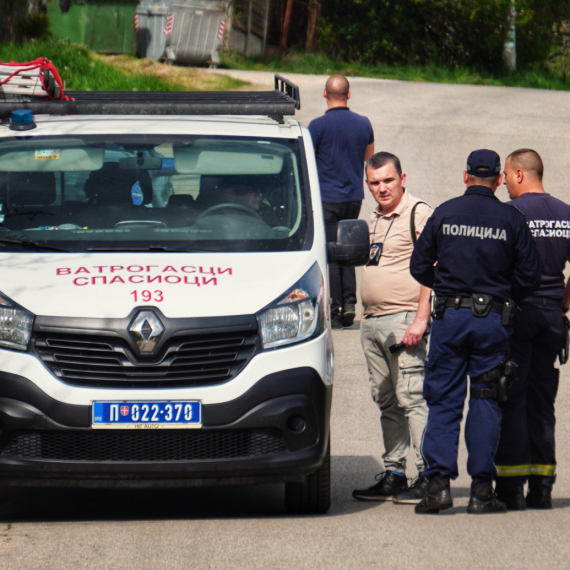
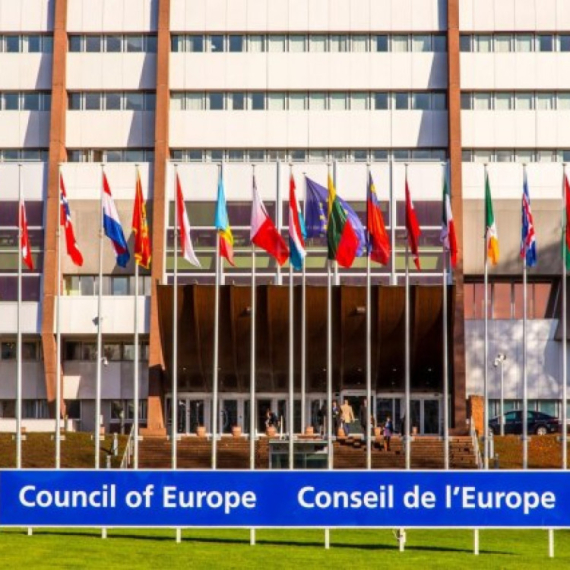







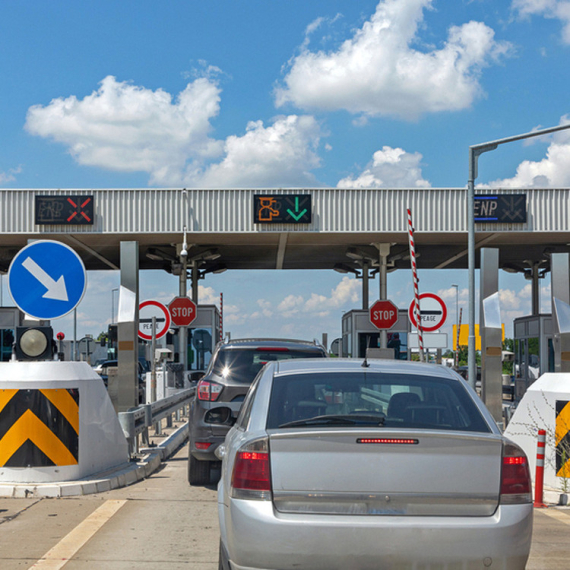



Komentari 40
Pogledaj komentare